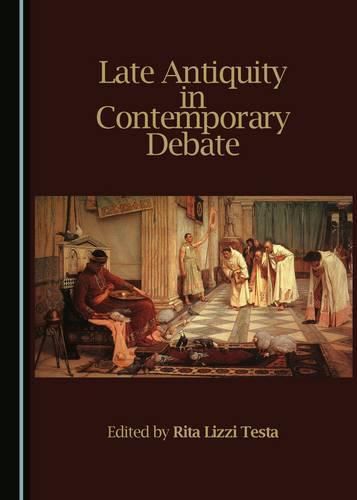Readings Newsletter
Become a Readings Member to make your shopping experience even easier.
Sign in or sign up for free!
You’re not far away from qualifying for FREE standard shipping within Australia
You’ve qualified for FREE standard shipping within Australia
The cart is loading…






Late Antiquity, once known only as the period of protracted decline in the ancient world (Bas-Empire), has now become a major research area. In recent years, a wide-ranging historiographic debate on Late Antiquity has also begun. Replacing Gibbon’s categories of decline and decadence with those of continuity and transformation has not only brought to the fore the concept of the Late Roman period, but has made the alleged hiatus between the Roman, Byzantine and Mediaeval ages less important, while also driving to the margins the question of the end of the Roman Empire. This has broadened the scope of research on Late Antiquity enormously and made the issue of periodization of crucial significance. The resulting debate has escaped the confines of Europe and now embraces almost all historiographic cultures around the world. This book sheds new light on this debate, collecting papers given at the 22nd International Congress of Historical Sciences (CISH/ICHS) in Jinan, China. They recall key moments of the discovery of the world of Late Antiquity, and show how it is possible to reach a definition of an age, analysing different sectors of history, using disparate sources, and with the guidance of very varied interpretative models.
$9.00 standard shipping within Australia
FREE standard shipping within Australia for orders over $100.00
Express & International shipping calculated at checkout
Late Antiquity, once known only as the period of protracted decline in the ancient world (Bas-Empire), has now become a major research area. In recent years, a wide-ranging historiographic debate on Late Antiquity has also begun. Replacing Gibbon’s categories of decline and decadence with those of continuity and transformation has not only brought to the fore the concept of the Late Roman period, but has made the alleged hiatus between the Roman, Byzantine and Mediaeval ages less important, while also driving to the margins the question of the end of the Roman Empire. This has broadened the scope of research on Late Antiquity enormously and made the issue of periodization of crucial significance. The resulting debate has escaped the confines of Europe and now embraces almost all historiographic cultures around the world. This book sheds new light on this debate, collecting papers given at the 22nd International Congress of Historical Sciences (CISH/ICHS) in Jinan, China. They recall key moments of the discovery of the world of Late Antiquity, and show how it is possible to reach a definition of an age, analysing different sectors of history, using disparate sources, and with the guidance of very varied interpretative models.